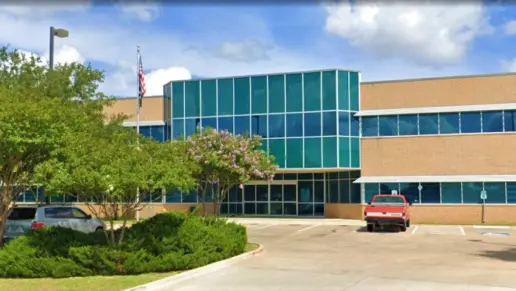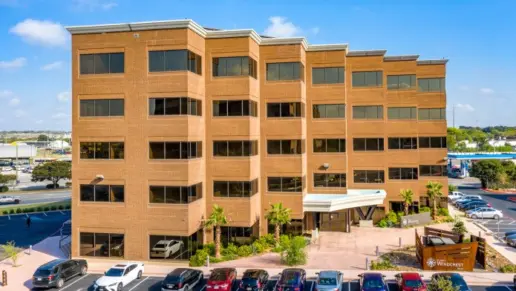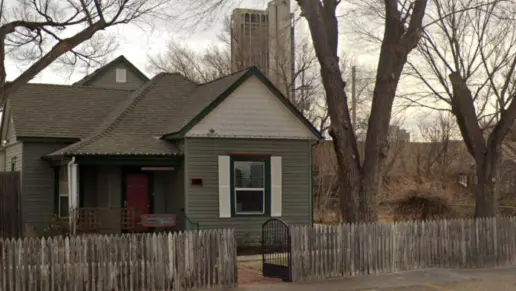About Cenikor Foundation
Cenikor is one of the best addiction treatment centers in Austin, Texas, because it offers a full continuum of care with multiple service offerings. This drug rehab center helps individuals by offering them every aspect of recovery help, from inpatient and outpatient programs for adults and youths to short-term drug and alcohol abuse programs. Each of these programs is individualized to suit the recovery needs of every individual.
Besides offering drug and alcohol addiction treatment services, Cenikor also provides continued support when an individual has found sobriety through recovery housing and alumni programs. Yet before an individual can benefit from these services, they must become involved in one of the following substance abuse recovery programs:
The intensive outpatient program (IOP) at Cnikor is led by licensed medical and clinical staff who conduct screenings, assessments, issue specific classes, early intervention, and recovery services.
This rehab center program is comprehensive, which is why it involves individuals, groups, and families through treating chemical dependency, therapy, family in recovery planning, codependency disorder education, and gender specific substance abuse issue education.
The Cenikor addiction treatment center offers a supportive inpatient residential treatment program. This rehab program is designed to help those ready to be physically, mentally, and spiritually committed to substance abuse recovery to better their lives and re-enter the workforce.
Some inpatient adult supportive services offered include 12 step groups, multi-family educational groups, certifications and diploma support, and soft skills training.
Medication assisted treatment (MAT) is believed to be one of the most effective opioid treatments. At Cenikor, this substance abuse addiction treatment center combines FDA approved medication known as Suboxone with psychosocial therapy to reduce withdrawal symptoms and cravings in a safe environment.
This treatment program includes patient specific treatment plans, individual counseling, transfers to this rehabs residential program, and access to Cenikors telehealth services.
The outpatient substance abuse withdrawal management program helps people remain on the path of recovery and sobriety in an outpatient setting. This program ensures individuals have access to ambulatory withdrawal management and supervised medication assisted treatment (MAT).
Cenikor offers individuals a short term inpatient recovery treatment program. This program provides nonemergency care in a structured environment. Some of the short term services offered to those battling substance abuse include discharge planning, referrals, 12 step group introductions, assessments and screenings, and individual and group counseling.
The youth inpatient treatment program is provided to those between the ages of 13 and 17. This drug and alcohol rehab program is operated by licensed staff and helps youths fight addiction and continue healthily into adulthood. In addition to providing early intervention, screening, assessments, and therapy, this program also provides schooling. Qualified teachers offer the schooling provided to ensure students receive an adequate education.
Youths requiring outpatient therapy and recovery treatment can enroll in the youth outpatient treatment program at Cenikor. The program is staffed by licensed counselors who use evidence based group counseling programs.
Latest Reviews
Rehab Score
Gallery
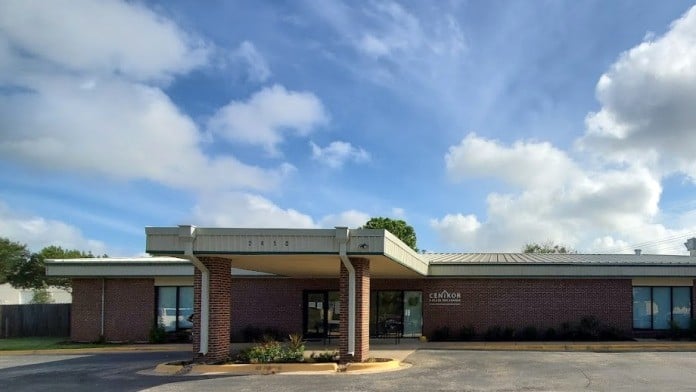
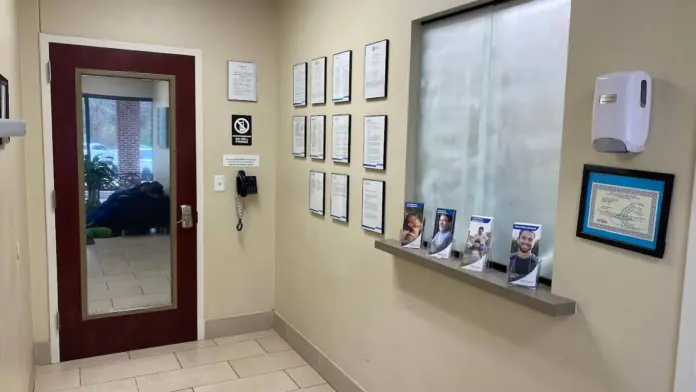
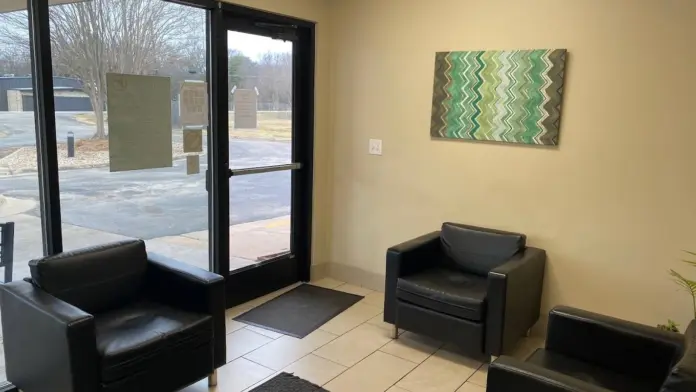
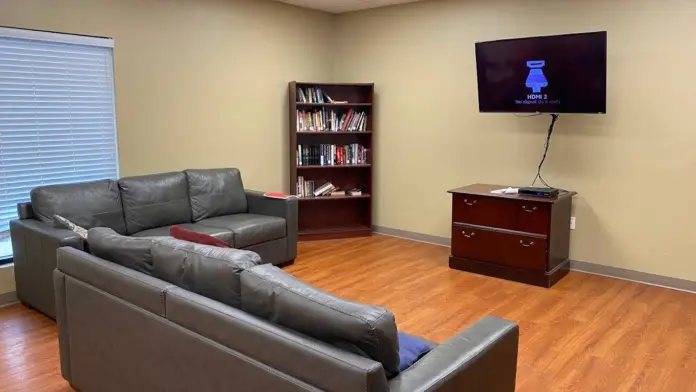
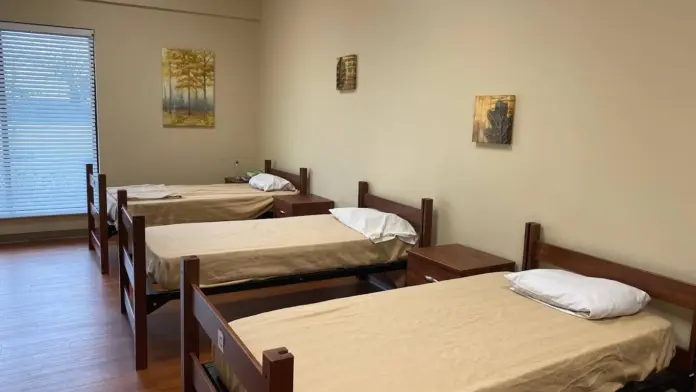
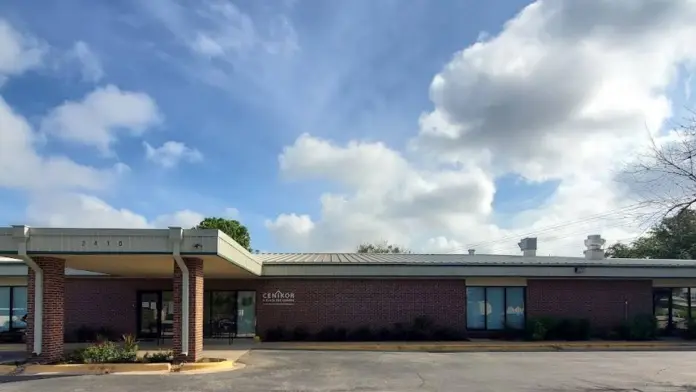
Location
Other Forms of Payment
Private insurance refers to any kind of healthcare coverage that isn't from the state or federal government. This includes individual and family plans offered by an employer or purchased from the Insurance Marketplace. Every plan will have different requirements and out of pocket costs so be sure to get the full details before you start treatment.
Self-pay involves paying for treatment out of your own pocket. You can use savings or credit, get a personal loan, or receive help from family and friends to fund your treatment. If you don't have insurance or your insurance plan doesn't cover a specific program, self-pay can help ensure you still get the care you need.
Financial aid can take many forms. Centers may have grants or scholarships available to clients who meet eligibility requirements. Programs that receive SAMHSA grants may have financial aid available for those who need treatment as well. Grants and scholarships can help you pai for treatment without having to repay.
Sliding scale payments are based on a client's income and family size. The goal is to make treatment affordable to everyone. By taking these factors into account, addiction recovery care providers help ensure that your treatment does not become a financial burden to you or your family, eliminating one barrier to care.
Medicare is a federal program that provides health insurance for those 65 and older. It also serves people under 65 with chronic and disabling health challenges. To use Medicare for addiction treatment you need to find a program that accepts Medicare and is in network with your plan. Out of pocket costs and preauthorization requirements vary, so always check with your provider.
Military members, veterans, and eligible dependents have access to specific insurance programs that help them get the care they need. TRICARE and VA insurance can help you access low cost or no cost addiction and mental health treatment. Programs that accept military insurance often have targeted treatment focused on the unique challenges military members, veterans, and their families face.
Medicaid is a state based program that helps lower-income individuals and families pay for healthcare. Medicaid covers addiction treatment so those enrolled can use their coverage to pay for rehab. When a program accepts Medicaid the client often pays very little or nothing out of their own pocket.
Addiction Treatments
Levels of Care
Treatments
The goal of treatment for alcoholism is abstinence. Those with poor social support, poor motivation, or psychiatric disorders tend to relapse within a few years of treatment. For these people, success is measured by longer periods of abstinence, reduced use of alcohol, better health, and improved social functioning. Recovery and Maintenance are usually based on 12 step programs and AA meetings.
During rehab in Texas, you'll deal with underlying issues that contribute to addiction. By addressing these challenges and learning healthy ways to cope with them, you'll develop strategies that help you live a drug-free lifestyle.
Many of those suffering from addiction also suffer from mental or emotional illnesses like schizophrenia, bipolar disorder, depression, or anxiety disorders. Rehab and other substance abuse facilities treating those with a dual diagnosis or co-occurring disorder administer psychiatric treatment to address the person's mental health issue in addition to drug and alcohol rehabilitation.
A combined mental health and substance abuse rehab has the staff and resources available to handle individuals with both mental health and substance abuse issues. It can be challenging to determine where a specific symptom stems from (a mental health issue or an issue related to substance abuse), so mental health and substance abuse professionals are helpful in detangling symptoms and keeping treatment on track.
Opioid rehabs specialize in supporting those recovering from opioid addiction. They treat those suffering from addiction to illegal opioids like heroin, as well as prescription drugs like oxycodone. These centers typically combine both physical as well as mental and emotional support to help stop addiction. Physical support often includes medical detox and subsequent medical support (including medication), and mental support includes in-depth therapy to address the underlying causes of addiction.
Programs


Clinical Services
The goal of cognitive behavioral therapy (CBT) in Texas is to change thought patterns, which leads to changes in behavior. Specific techniques during CBT can include self talk, SMART goals, journaling, and positive activities.
In individual therapy, a patient meets one-on-one with a trained psychologist or counselor. Therapy is a pivotal part of effective substance abuse treatment, as it often covers root causes of addiction, including challenges faced by the patient in their social, family, and work/school life.
Therapy sessions that incorporate motivational interviewing focus on OARS: open questions, affirmation, reflections, and summarizing. This facilitates an exchange of information and an empowering of the client to decide for themselves what changes might need to be made in their lives.
Together with an experienced trauma therapist, you work on healing emotional wounds from traumatic experiences within a trauma therapy environment. Your therapist will help you process the experience of the trauma, which promotes emotional healing and improves your overall mental health.
Research clearly demonstrates that recovery is far more successful and sustainable when loved ones like family members participate in rehab and substance abuse treatment. Genetic factors may be at play when it comes to drug and alcohol addiction, as well as mental health issues. Family dynamics often play a critical role in addiction triggers, and if properly educated, family members can be a strong source of support when it comes to rehabilitation.
Life skills trainings involve all the skills a person must have in order to function successfully in the world. These include time management, career guidance, money management, and effective communication. Truly successful addiction recovery is based on the ability to not only live substance-free, but to thrive. Life skills teaches the practical necessities of functioning in society, which sets clients up for success in life, and therefore sobriety.
Amenities
-
Private Setting
-
Yoga Studio
-
Residential Setting
-
Private Rooms
Staff & Accreditations
Staff

President & Chief Executive Officer
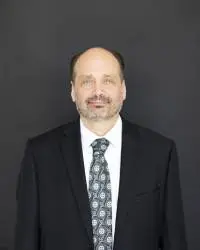
Sr. Regional Director

Chief of Staff

Chief Financial Officer
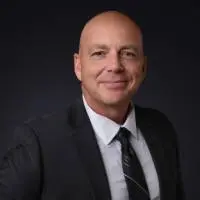
Assistant Vice President of Operations
Accreditations

The Commission on Accreditation of Rehabilitation Facilities (CARF) is a non-profit organization that specifically accredits rehab organizations. Founded in 1966, CARF's, mission is to help service providers like rehab facilities maintain high standards of care.
CARF Accreditation: Yes
Accreditation Number: 277429
Contact Information
2410 West Howard Ln.
Austin, TX 78728
